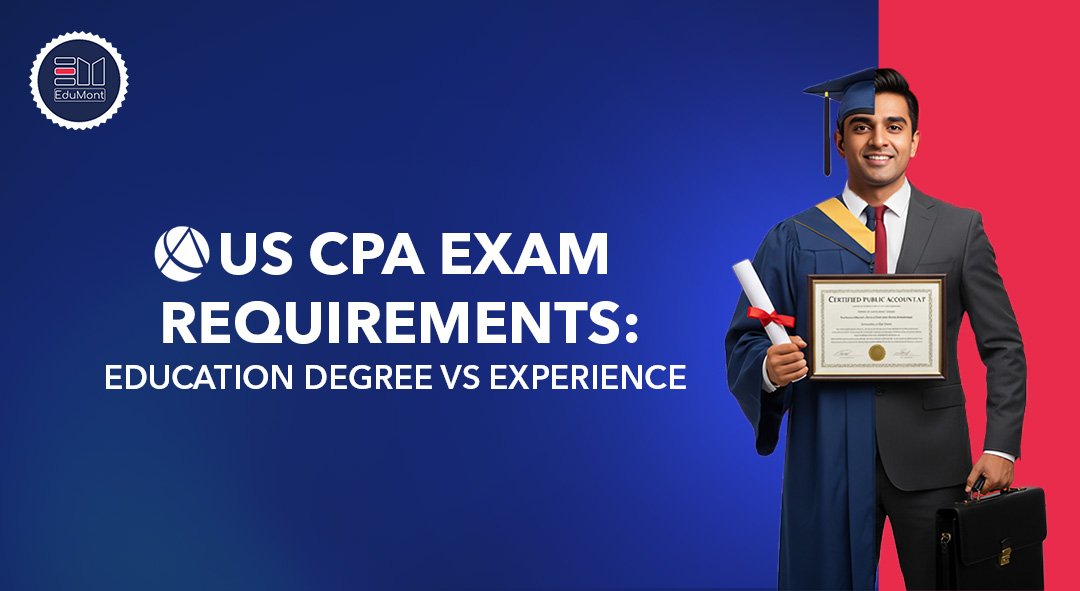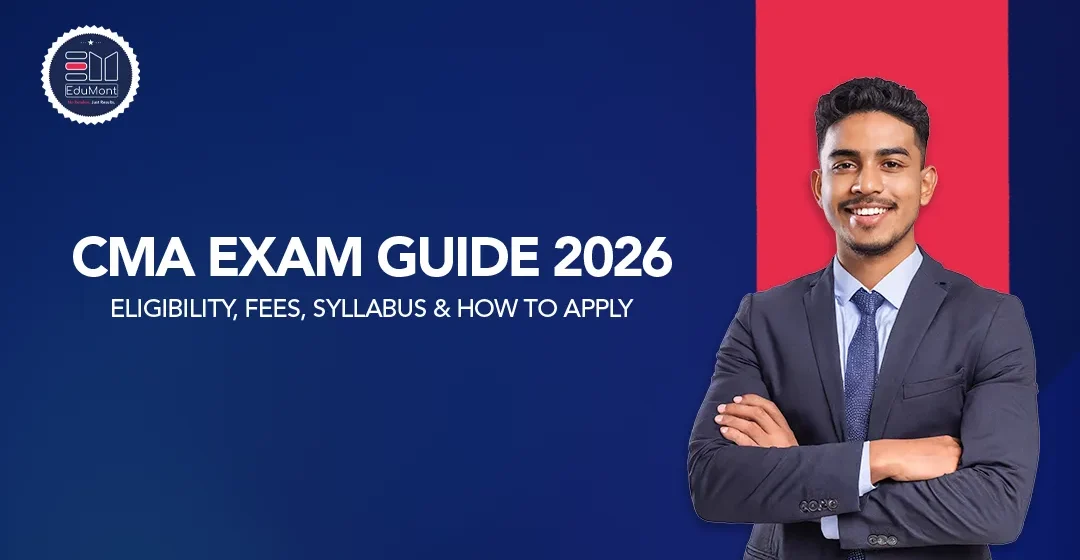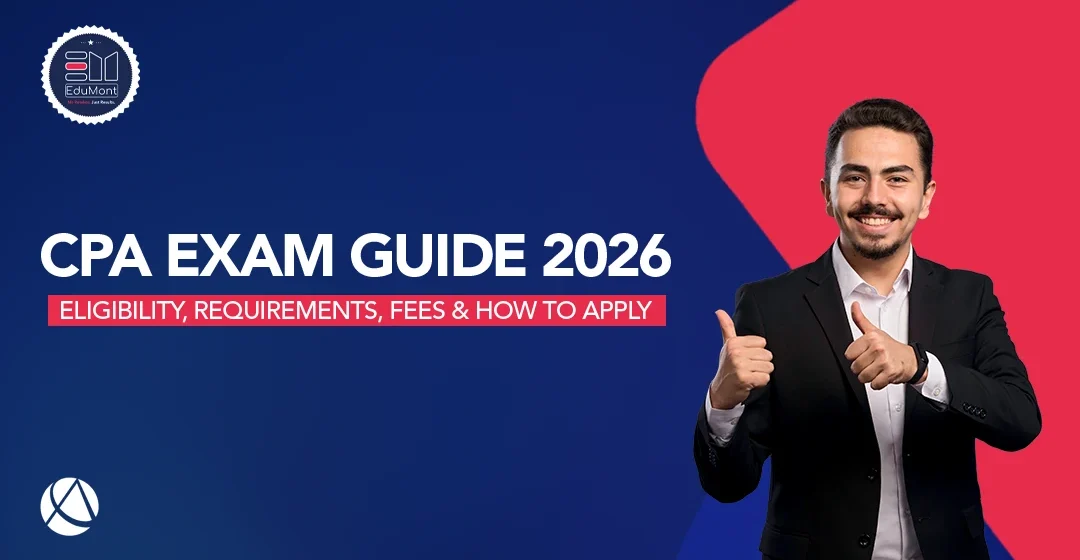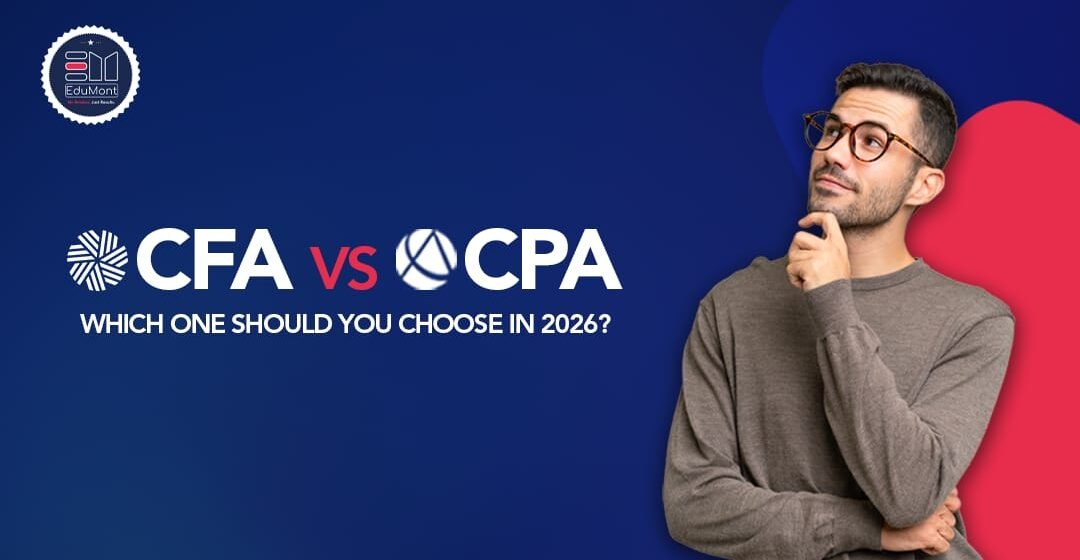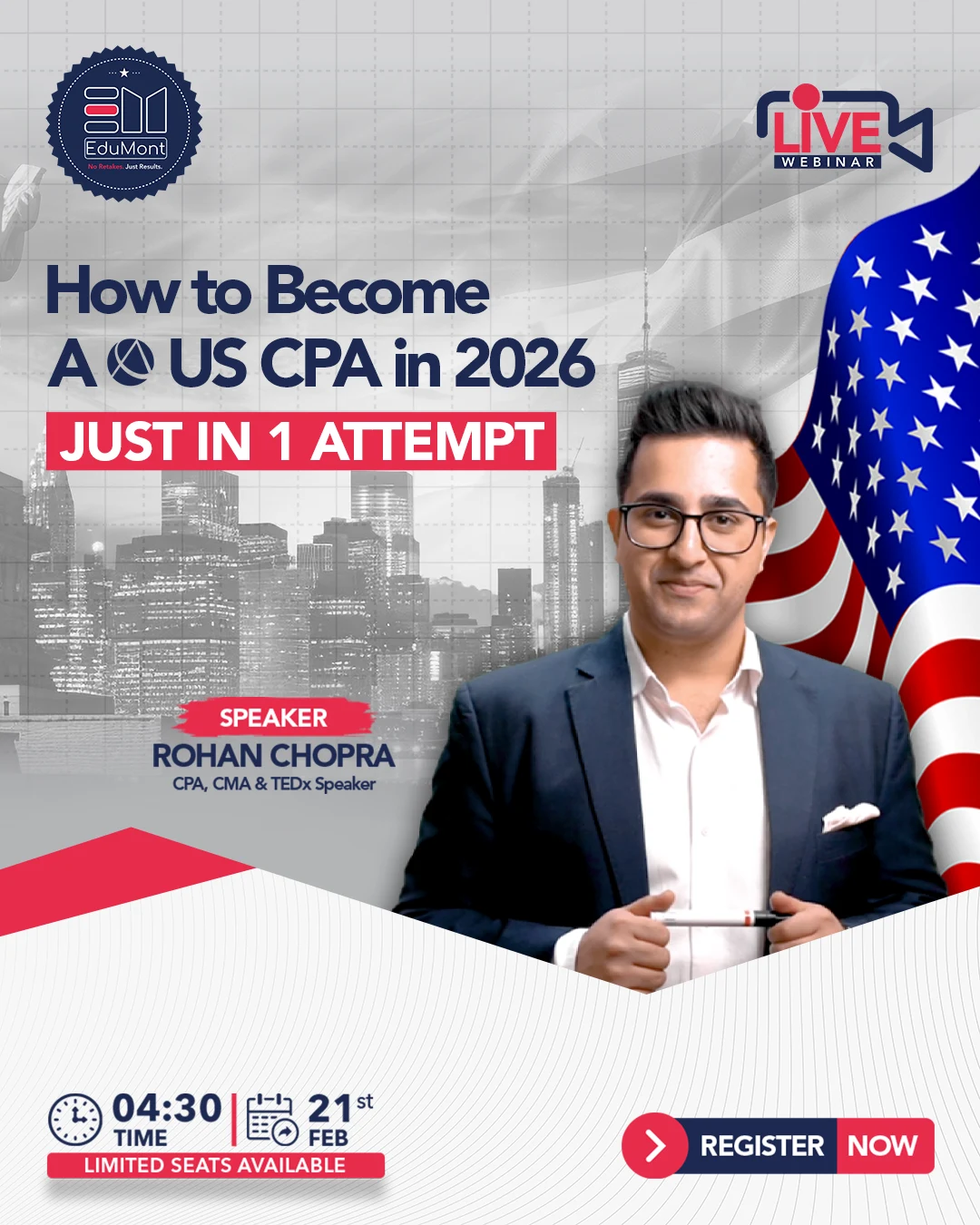US CPA Exam Requirements: Journey to becoming a Certified Public Accountant (CPA) is often described through the “Three Es”: Education, Examination, and Experience. Each step is essential, but for many aspiring professionals, the real question is: Does education matter more than work experience, or is it the other way around?
The truth is, you cannot sidestep either. Education lays the foundation, while experience shapes the professional. Together, they pave the way for CPA licensure. Let’s explore both sides and along the way, you’ll discover a few insider tips and surprising facts that might give you an edge.
US CPA Exam Eligibility Criteria: Degree, Exam, and Work Experience
Now, first things first… As is known to all the candidates, US CPA stands for United States Certified Public Accountant. It is a globally recognized certification, which lands you a high-paying Accounting, Taxation, and more related jobs in Big Firms. However, there are certain requirements that one needs to fulfill to sit in the exam and also to get the license. These requirements are:
- A Bachelor’s degree (If from an Accounting background, then well and good)
- Passing all four CPA exam sections within 18 months
- Varies by state, but generally includes 1-2 years of experience or Practice
Check CPA exam requirements – NASBA
Now, for the license, the eligibility requirements change a bit:
- Clear all 4 US CPA Exam sections and each test let by scoring 75 percentile
- Have 2 Years of working experience and get the sign-off from a licensed CPA
Well, it also clears the debate regarding “Work Experience or Education Degree: What matters the most?”
US CPA Exam Education Requirements: Why 150 Credits Matter
Before you can even sit for the CPA Exam, state boards demand strict academic preparation. This ensures every candidate starts with the same depth of technical knowledge.
CPA Exam 150-Credit Rule Explained for Indian Students
A bachelor’s degree usually gives you 90 credits. However, for examination purposes, you need 120 credits. And nearly every state requires 150 credits to qualify for licensure. That means 60 extra credits, which many candidates fulfill with a master’s degree, certificate program, or bridge courses.
150-Credit Requirement – AICPA
Quick Tip: If you’re not keen on graduate school, many universities offer online post-bachelorate accounting programs. And a coaching institute can guide you to the required Bridge Course. These are often of 1 year, yet they still count toward your 120 credits and help to reach 150 credits. EduMont Classes offers you a UGC-approved Bridge Course to cover the credit gap.
Accounting & Taxation Coursework for US CPA Exam
Courses in auditing, taxation, ethics, and financial reporting aren’t just checkboxes. They’re what prepare you for the trickier parts of the CPA Exam.
Fun Fact: In many states, at least 24 credits in accounting subjects are mandatory. If you skip this, even with 150 total credits, you might not qualify.
Academic Credibility for Big Four & Beyond
Top firms, especially the Big Four, often look beyond the CPA Exam itself. A solid GPA and degree from an accredited institution can make your resume stand out.
Secret Recipe: Many candidates double-major in accounting and finance (or minor in business law). This not only satisfies credit requirements but also makes you more marketable in advisory and corporate roles.
Education, at its core, provides the “what” and “why” of accounting. Without it, there’s no framework to guide your practice.
US CPA Experience Requirements: CPA Supervised Work & Skills
Passing the exam is a triumph, but applying that knowledge in the real world is what proves you’re US CPA material.
Practical CPA Skills: Audit, Taxation & Financial Reporting
Most states require 1–2 years of supervised experience under a licensed CPA. This isn’t about clocking Creditsit’s about showing you can handle tasks like preparing financials, conducting audits, or solving tricky tax problems.
Experience verification – NASBA
Quick Tip: If you’re struggling to find CPA-supervised work, look into government or non-profit roles. Many of these qualify and often provide broader exposure than entry-level corporate jobs.
Soft Skills Required for US CPA Success
Numbers alone don’t make a CPA. In practice, you’ll need communication, problem-solving, and adaptability. These are sharpened only in the workplace.
CPA Supervisor Sign-Off: Why It’s Essential for Licensure
Perhaps the most overlooked requirement is the final sign-off from your supervising CPA. Their approval confirms you’re not just book-smart but capable of handling client trust.
Secret Recipe: Stay in touch with your mentor or supervisor. Ask for feedback regularly. Not only will it strengthen your learning, but it will also ensure your sign-off isn’t just a formality it becomes a strong professional endorsement. At EduMont Classes, you can get signed off by Rohan Chopra Sir, a CPA and CMA certification & experience holder.
Work experience is the “how” of the CPA journey. It’s what transforms knowledge into professional judgment.
Education vs Experience: Which Matters More for the US CPA License?
So, which matters more? The answer: both and equally so.
Picture this:
- A candidate with only education might ace exams but struggle with client dynamics.
- A candidate with only experience may excel in day-to-day tasks but lack the broader perspective to lead in complex engagements.
The CPA license protects public trust, which is why the system demands both intellectual mastery and practical readiness. There’s no shortcut.
Key Takeaways for Indian Students Preparing for the US CPA Exam
- Start early on your 120/150-credit plan. Don’t wait until after graduation to figure it out.
- Look for experience outside the Big Four. Small firms, industry roles, and government jobs all count.
- Balance study and work. Passing the exam is easier when you can connect textbook theory with what you see on the job.
- Network with CPAs. They not only guide your path but also become the mentors who sign off on your license.
Ready to Begin Your CPA Journey?
At EduMont Classes, we help you navigate both sides of the equation: academic preparation for the CPA Exam and practical guidance from licensed CPAs who’ve been in your shoes.
Learn more about the CPA Exam requirements and CPA fees on the AICPA official website. Don’t leave your CPA dream to chance. Your CPA dream deserves more than chance – it deserves a plan. Contact EduMont today, and let’s build yours.
Mohit Taneja
Mohit Taneja is Sr Program Advisor specializing in US CPA and US CMA certifications. With 10 years of experience guiding students and professionals through the complexities of international accounting credentials. He offers expert insights on eligibility, exam strategy, and career pathways. His consulting approach is practical, student-centric, and driven by results.
Connect with him for reliable mentorship and strategies to unlock global accounting careers.




